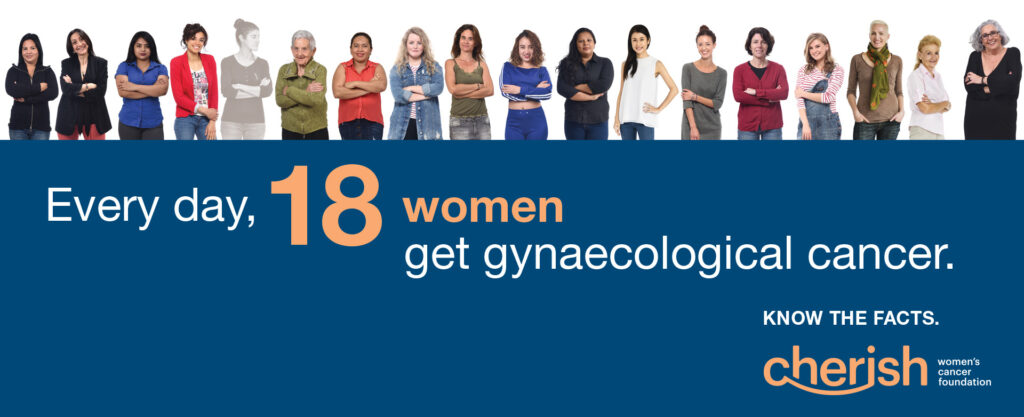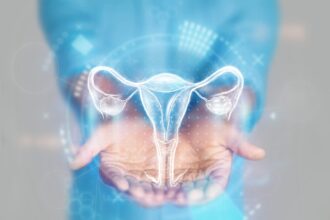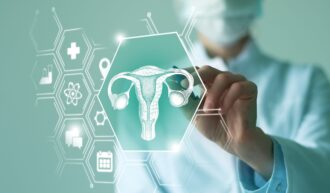
September is Gynaecological Cancer Awareness Month, an important time to remind all Australians to know the facts about gynaecological cancer.
During Gynaecological Cancer Awareness Month, we also highlight why research in this area is crucial to improving women’s survival rates and quality of life. Every day in Australia, 18 women are diagnosed with gynaecological cancer. Six of these women will not survive.
The only way to stop deaths from gynaecological cancer is by funding research to improve our understanding of how cancer starts, grows and spreads. Join us to find kinder and more effective ways to prevent, detect and treat gynaecological cancer.
This September, there are many ways you can get involved in raising awareness and funds for gynaecological cancer research.
Despite the increasing prevalence of this women’s cancer, it has never gained the same attention or research funding as other cancers, such as breast cancer. Cherish is here to change that!
Gynaecological Cancer Awareness Month takes place every September. The aim is to increase awareness about this disease and its impact on thousands of Australians. Many Australians do not know gynaecological cancer exists until they are diagnosed.
Over 6,700 Australians will be diagnosed with the disease this year alone.
That equates to 18 women every day.
One-third will not survive. That is six women every day – someone’s mother, sister, daughter, friend, or family member whose life has been tragically cut short because of this disease.
Survival rates for breast cancer are now at 92% and rising, thanks to investment in medical research. In contrast, gynaecological cancer survival rates have barely changed. There is still so much progress to be made to stop women dying from gynaecological cancer. Progress comes from research.
Researchers working on gynaecological cancer rely on generous donations from the Australian community. There are researchers ready to tackle important projects, but they lack the funds to get started. If you can help, please join us.

Gynaecological cancers are cancers of the female reproductive system. They include ovarian cancer, cervical cancer, endometrial cancer (also known as uterine cancer), vaginal cancer and vulvar cancer.
All women are at risk of these cancers. But as they relate to a woman’s reproductive system, often they’re not talked about as much as other cancers. Let’s abandon the stigma and encourage conversations about gynaecological cancer and its impact.
Knowing the facts – gynaecological cancer’s signs and symptoms – can lead to earlier diagnosis and better treatment outcomes.
Your donation will save women’s lives.
Cherish advocates for awareness and research funding for all gynaecological cancers. 100% of all the donations received by Cherish go to clinical research, including to our major research partner QCGC Research.
Queensland Centre for Gynaecological Cancer Research
Without community support, research trials like feMMe and ENDO3 would never get started.
During an earlier trial, the QCGC Research team found that even with laparoscopic surgery for endometrial cancer, larger women did not fare well. This discovery led to the feMMe trial, made possible with initial funding support from Cherish.
Cherish funded QCGC Research’s first post-doctoral researcher, Dr Eva Baxter, to work on this vital research.
feMMe aims to treat women with endometrial cancer less invasively using the Mirena, an intra-uterine device (IUD), and an anti-diabetes drug, Metformin. The research team recruited 165 women for the trial, with the last patient enrolled in April 2020, and will follow the women’s progress for seven years.
Now, feMMe has evolved into a new study – feMMe Molecular, which aims to gather evidence to determine which women benefit from this minimally-invasive approach and which do not. Read more.
ENDO3 is a world-first randomised clinical trial studying the benefits and risks of lymph node removal during the treatment of women with endometrial cancer.
Over the past two years, Cherish has given more than $130,000 to this vital research. As a result of this early investment to gather initial data, the ENDO3 team has secured Australian Government funding to expand the trial.
 Currently, doctors perform a hysterectomy and a lymph node dissection under one anaesthetic, but the benefit of this approach has never been shown in a randomised trial. Doctors and patients are concerned this surgery may cause ‘more harm than good’. ENDO3 will determine the value of continuing (or not) the procedure in early-stage endometrial cancer treatment. ENDO-3 started in 2021. Since then, 13 surgeons have been accredited, and 153 patients, from eight Australian sites have volunteered for the trial. Read more.
Currently, doctors perform a hysterectomy and a lymph node dissection under one anaesthetic, but the benefit of this approach has never been shown in a randomised trial. Doctors and patients are concerned this surgery may cause ‘more harm than good’. ENDO3 will determine the value of continuing (or not) the procedure in early-stage endometrial cancer treatment. ENDO-3 started in 2021. Since then, 13 surgeons have been accredited, and 153 patients, from eight Australian sites have volunteered for the trial. Read more.